Hi, what do you want to do?
National Humanities Center
Teaching The Great Gatsby: A Common Core Close Reading Seminar
The 41 slides in a professional development seminar model how to use close reading techniques to examine the many layers of F. Scott Fitzgerald's The Great Gatsby. In addition to passages from the novel, slides provide biographical...
Personal Genetics Education Project
Genetics, history and the American Eugenics Movement
A poignant 20-slide show introduces high schoolers to the amazing accomplishments of genomics and raises the question of eugenics. This lesson is only for mature audiences, as it deals with rape and other sensitive topics, but it is...
Curated OER
Eugenics Worksheet
Students become familiar with the vocabulary associated with treatment of disabilities. In this Eugenics lesson plan, students complete a worksheet on Eugenics and discuss the treatment of people with disabilities in the past and present.
Personal Genetics Education Project
Using Primary Sources to Examine the History of Eugenics
Eugenics philosophy takes survival of the fittest to a whole new level. With a research-focused lesson, young scientists examine the history of the eugenics movement and its impact on society. Pupils engage with a video clip, primary...
Cold Spring Harbor Laboratory
Mendelian Genetics Cannot Fully Explain Human Health and Behavior
The breakthrough of Mendelian genetics solved many puzzles for biologists. Then, scientists decided to apply the theory to human behavior. Learn the story and struggle of finding a genetic explanation for hobbies, interests, and mental...
Facing History and Ourselves
Us and Them: Confronting Labels and Lies
Stereotyping and discrimination based on religion catalyze many atrocities in the world. Explain the awful treatment of Jews and the lies Nazis spread by using an informative yet sensitive resource. Learners participate in a warm-up and...
While They Watched
Teaching the Holocaust
What is the difference between prejudice and discrimination? Between collaborators and bystanders? Guilt and responsibility? Prompt learners to think critically about a very complex and textured topic with an innovative packet...
Core Knowledge Foundation
Genetics and the Master Race
How did the beginnings of genetic research influence the Nazi party? A thorough, engaging unit incorporates the work of Gregor Mendel, the study of inherited traits, and the use of racism and discrimination during the Holocaust.
Curated OER
Genetic Testing: Modern-Day Eugenics?
Students trace the history of the development of Eugenics. In this social studies lesson, students read and analyze a real life case. They write a paper about what they read.
Curated OER
A New Society Project
Ninth graders examine the social and political movements of the Gilded Age and Progressive Era. In this American history lesson, 9th graders work in groups to form their own society and laws. Students make a diagram of their town and...
Curated OER
Three Generations of Imbeciles...": Eugenic Sterilization in America
Young scholars examine the Eugenics movement in America with the case Buck vs. Bell, in which a woman was sterilized against her. They examine how science has been influential in forming public policy. They write a short paper on their...
Curated OER
American Influences on Eugenics in Nazi Germany
Students examine the Eugenics movement in America. They discover the Nazi's belief in racial purity and how it relates to Eugenics. They also analyze how science has been influential in creating public policy.
Curated OER
Words Sixth Graders Should Know 2
In this spelling activity, 6th graders identify and locate various vocabulary terms that sixth graders should know. There are 54 words located in the puzzle.
Cold Spring Harbor Laboratory
Dna Interactive: Teacher Guide
Teacher resource page provides links to additional teacher materials, the six units, student worksheets and templates that can be used as teachers and students work through the DNA Interactive site.
Cold Spring Harbor Laboratory
Dna From the Beginning: Genetics Cannot Explain Health
The subject of eugenics tried to explain behavior with simple genetics principles, which we now know is not possible. The subject is handled well. This multimedia article includes animations, pictures, video, biographical information,...
Cold Spring Harbor Laboratory
Eugenics Archive: Eugenics Popularization
This article explains how the idea of eugenics, based on poor science, became popular in the 1920s as a reaction against immigration and African Americans.
Other
Contagion: The Spread of Eugenics Throughout American Popular Culture in the 20s
A comprehensive look at the theory of eugenics, the pseudo-scientific idea that fed into the nativists' search for the "superior" American. This article explains how companies used this theory to sell their products.
Other
For Many, One: The Kkk in the 1920s
This is an in-depth look at the Ku Klux Klan in the United States in the 1920s. Find out why there was a resurgence of this hateful group, read about their philosophy, and how their views were influenced by the events of the Jazz Age.
OpenStax
Open Stax: Progressive Movement: New Voices for Women and African Americans
Examines how the women's rights movement began and how it evolved over time, followed by a look at the development of the African American civil rights movement and the different leaders that emerged during the Progressive Era.
Discovery Education
Discovery Education: The Holocaust's Legacy
With this lesson plan, teachers can foster students' understanding of the devastating impact of the Holocaust. Highlights the racism of Nazi Germany and discusses the fact that many people still hold these types of beliefs today.
Other
Unc Charlotte: History of Scientific Racism [Pdf]
A scholarly article by Anthropology Professor Jonathan Marks on the history of scientific racism. Published in the Encyclopedia of Race and Racism.
British Library
British Library: Discovering Literature: Romantics & Victorians Visions
From eccentric inventions to fears of invasion; from social degeneration to visions of the apocalypse - these articles research literary depictions of the future and how they reflect contemporary fears of social, technological, and...
Khan Academy
Khan Academy: Ap Us History Unit: Period 7: 1890 1945: The Progressive Era
The study resource from Khan Academy provides an overview of Period 7: 1890-1945: The Progressive Era. An overview of an Progressive Era is provided. This resource is designed as a review for the AP US History Test.
Khan Academy
Khan Academy: Ap Us History Period 6: 1865 1898: Social Darwinism & Gilded Age
The study resource from Khan Academy provides an overview of Period 6: 1865-1898 in American History. Social Darwinism, Charles Darwin, and the Gilded Ages are discussed in this lesson. This resource is designed as a review for the AP US...



















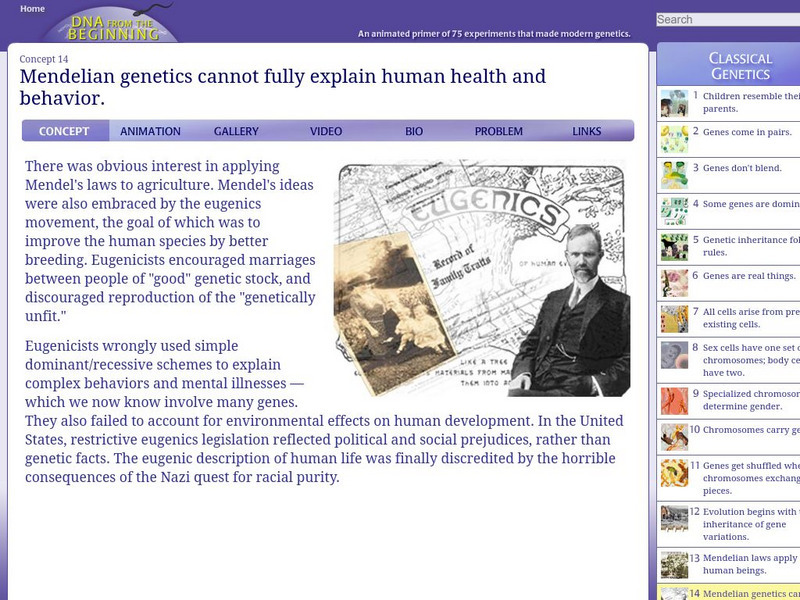
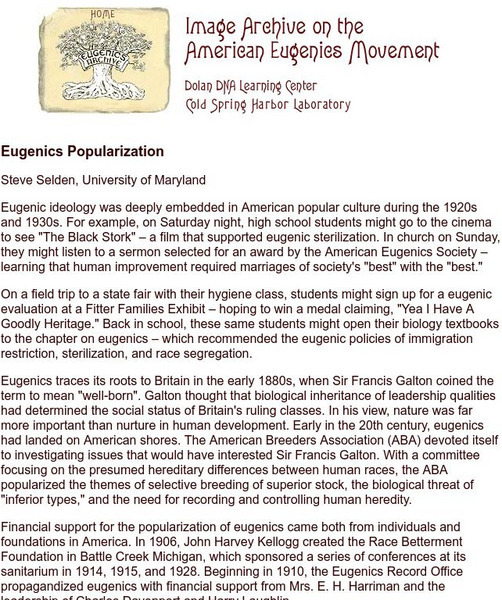
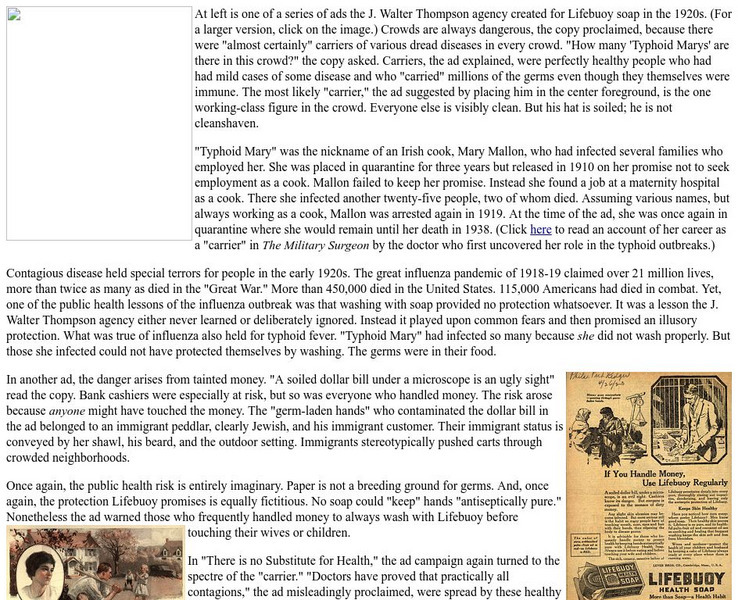
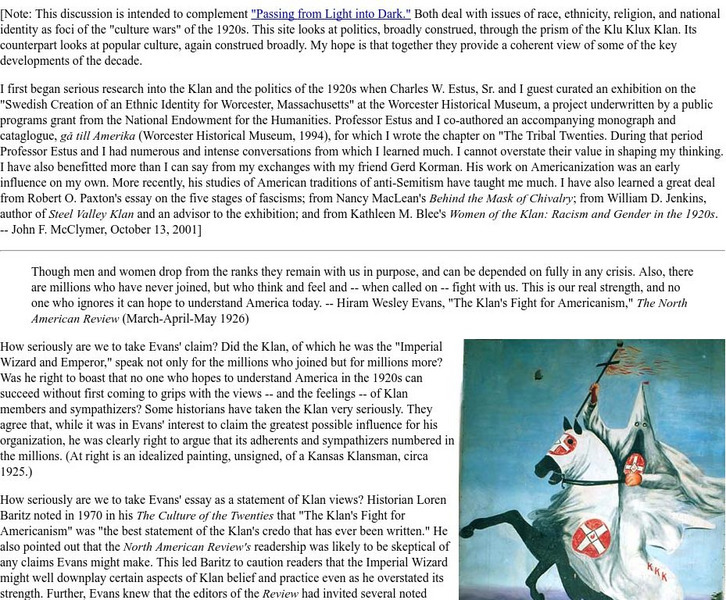
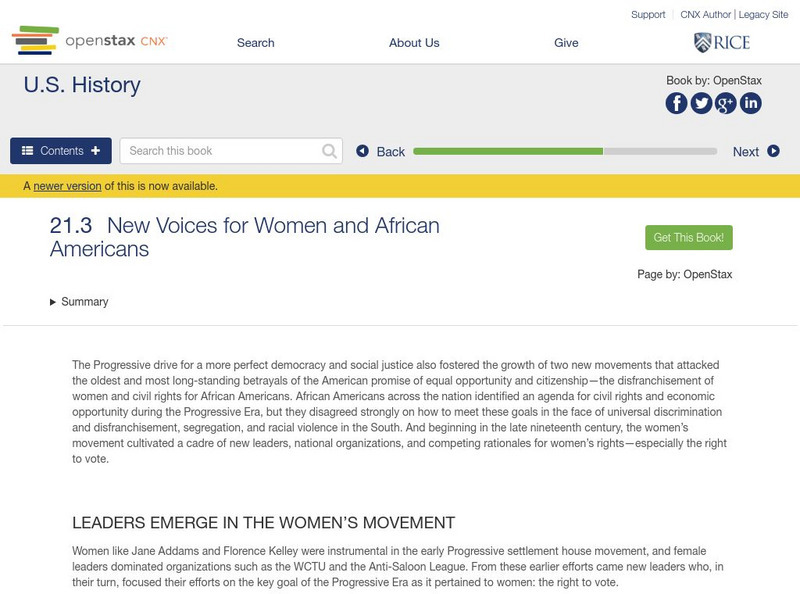

![Unc Charlotte: History of Scientific Racism [Pdf] Article Unc Charlotte: History of Scientific Racism [Pdf] Article](https://static.lp.lexp.cloud/images/attachment_defaults/resource/large/FPO-knovation.png)

